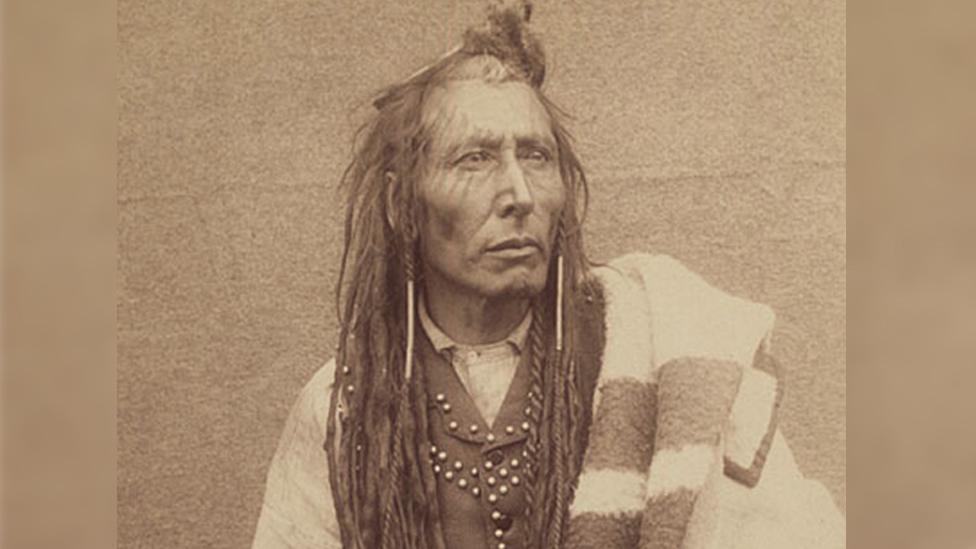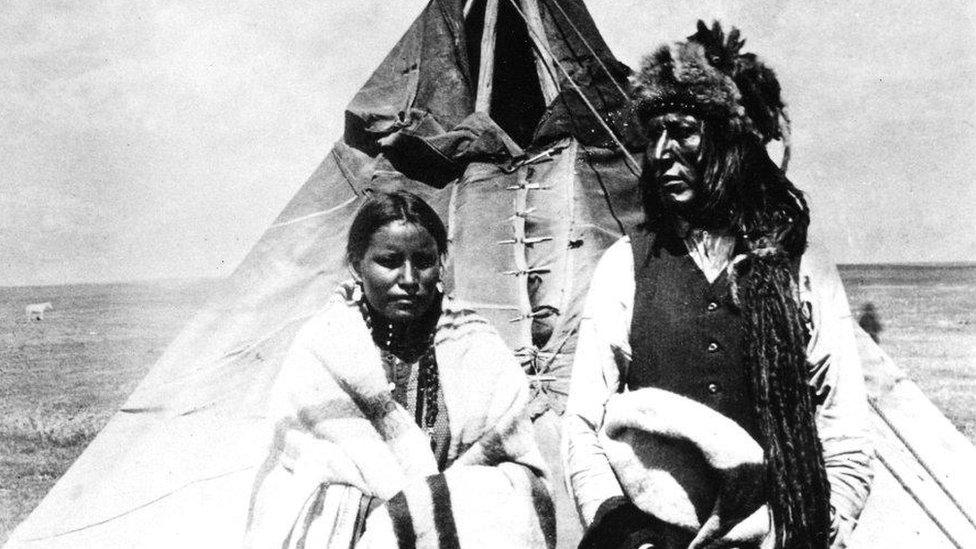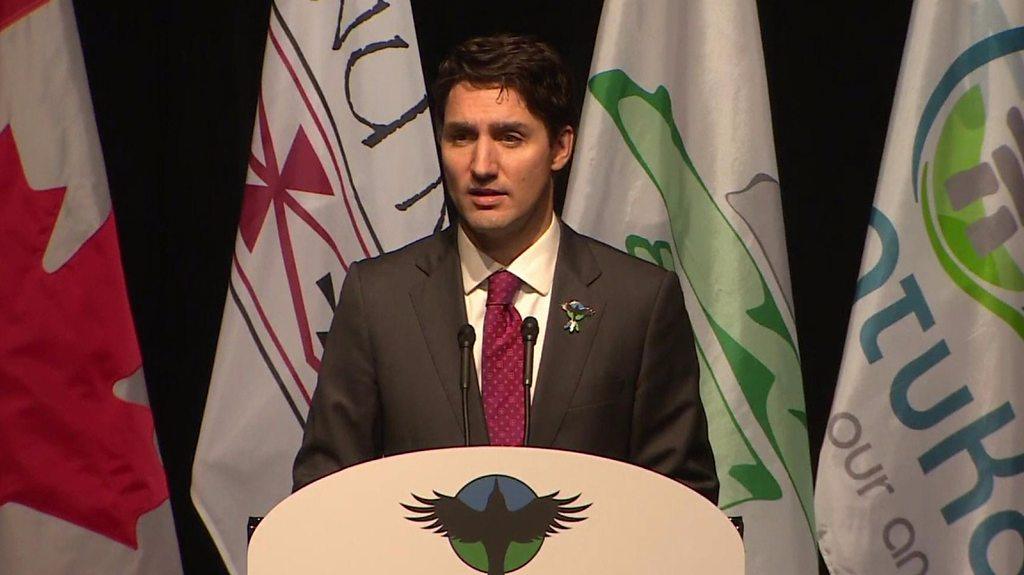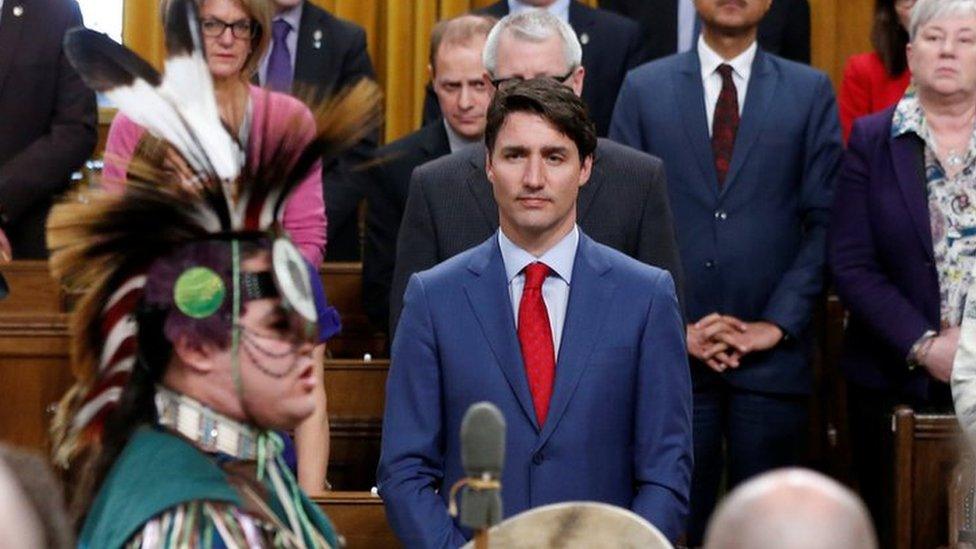Trudeau exonerates Cree chief of 1885 treason charge
- Published

Chief Poundmaker
Canadian Prime Minister Justin Trudeau has exonerated a Cree leader who was convicted in 1885 on a charge of "treason-felony".
Chief Poundmaker was wrongfully accused as being one of the instigators in a brief rebellion against the Canadian government.
He is now remembered as a diplomat and peacemaker during a turbulent time in the country's history.
The apology comes after a long campaign to formally clear his name.
On Thursday, at a ceremony on the Poundmaker Cree Nation, about 200km (125 miles) northwest of Saskatoon, Mr Trudeau said Canada recognises "that during his lifetime, Chief Poundmaker was not treated justly nor showed the respect he deserved as a leader of his people".
The prime minister called Poundmaker - or Pitikwahanapiwiyin in Cree - "a peacemaker who never stopped fighting for peace, a leader who, time and time again, sought to prevent further loss of life in the growing conflict in the prairies".
Former Poundmaker Cree Nation chief Blaine Favel called the apology a step towards reconciliation and said it "makes the history of Canada that much more rich".
Poundmaker was a leader during a period of growing insecurity and rapid change among the Metis, First Nations peoples, and settlers living in Canada's prairies.
First Nations peoples were becoming increasingly disillusioned at the government's failure to live up to recent treaty commitments, including promises of rations.
Meanwhile, a Metis-led rebellion in the region over land concerns had led to outbreaks of violence.
At the time, in March 1885, Chief Poundmaker travelled with a delegation from his reserve to nearby Fort Battleford and its neighbouring village to ask for overdue government rations.
Due to the unrest, the inhabitants had holed up in the barracks and government officials refused to leave the safety of the fort to meet with Poundmaker. Frustrated, his men are alleged to have ransacked the village despite the chief's protests.
"Chief Poundmaker and his people came to be viewed as a threat," Mr Trudeau said.
In retaliation, over 300 Canadian militiamen - led by Lt Col William Otter - set off to attack Poundmaker's camp.

Cree Chief Poundmaker and his wife, 1880s
The Battle of Cut Knife Hill lasted some seven hours. Facing stiff resistance, Lt Col Otter eventually called for a retreat.
Poundmaker is credited with preventing the warriors from pursuing retreating militiamen, saving countless lives and preventing further bloodshed.
After the battle, and following a failed attempt to negotiate a peace agreement in an effort to prevent further reprisals, he was arrested and put on trial for treason.
He was convicted, and sentenced to three years in jail. He maintained his innocence.
Poundmaker was released after serving a year in jail due to deteriorating health and died four months after.
His prosecution was part of an effort by the Canadian government to suppress further armed conflicts and exert more control over the indigenous peoples in the region, and secure its push to settle the west.
- Published24 November 2017

- Published8 March 2019

- Published27 March 2018
